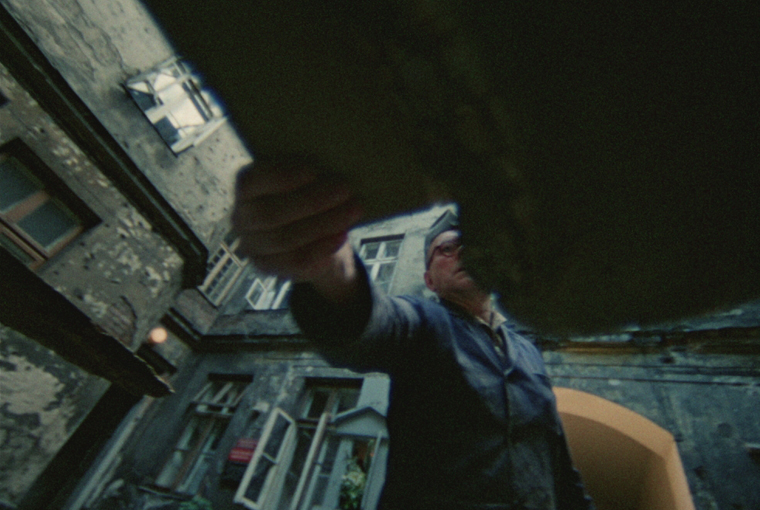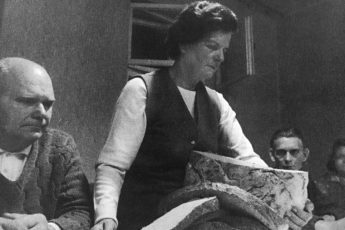
In 2015, EEFB will shift its regional focus from Poland to the South Caucasus region (Armenia, Azerbaijan, Georgia). In this month’s editorial, we sum up the findings, observations and questions that emerged on our website in one year of covering Poland – a year which has haphazardly further strengthened the international standing of Polish cinema with the unprecedented rise of Paweł Pawlikowski’s Ida.
It is symptomatic of the contemporary Polish film landscape that Ida, the big winner of the European Film Awards and a hopeful for both the Oscars and Golden Globes, is a film which deals with history. Of the 39 films we reviewed for our Polish focus 2014, nearly a third are set in or deal with historical settings and were produced after 2000. In fact, many of these historical films not only address a period in history, but history itself. Ida for instance is both a film about the Holocaust and a distinct historical setting (the 1960s) when speaking about the Holocaust was tabooed. Similarly, Aftermath recounts the story of two brothers who investigate the disappearance of the Jewish community of their village. As Moritz Pfeifer observes, such films “compare the fate of those who try to look for the truth in the present with that of the victims of the past”. Ironically, the Holocaust thus becomes another instrument for creating Polish heroes. Other successful films similarly invent heroes although nominally being interested in deconstructing historical myths. Wojciech Smarzowski’s Roza depicts the post-WWII era as a time when Poles acted no less unethically than many of their enemies during the war. Only that the real protagonist of the film is Tadeusz, a stoic, Polish hero with a supernatural moral codex who deals out blows left and right regardless of national affiliation and thus saves the day (to the extent to which that is possible). In the end, Polish directors arrive at a diplomatic compromise that can do wonders: on the one hand, they please patriotic Poles who are keen to see their national awareness reinforced. On the other, outsiders get the impression that Polish cinema really demystifies. While on the lowest form of abstraction it turns out that not everybody was a hero, the nation’s integrity is preserved and reinforced on a higher level by those who were (in some cases, notably In Darkness, both sides are represented by a single person, here by a sewage worker who evolves from anti-Semite to lifesaver).
This observation affirms that Polish cinema has first and foremost developed formally. What has changed substantially in recent years are not opinions or world views, but the vocabulary with which that material is communicated. Instead of proclaiming that all Poles were heroes (cf. epics from the late 1990s like With Fire and Sword), contemporary directors are content with suggesting that some were. This is particularly interesting because part of the allure of (anti-)Socialist cinema seems to be a lack of dogmatism. Konstanty Kuzma argued in a comparative article of two recent Polish films that Socialist oppression did not only inspire directors qua oppression or because it engendered an insinuative creative language, but because it forced directors to mitigate. Of course, this is not to say that relativism is a priori good. The best proof are contemporary Polish films about history, which are simply patriotic 2.0: where Polish directors used to investigate alcoholism, conformism, superstition etc., hereby discrediting the regime by extension through arguments that are universally valid, the Polish historical films of today are caught up in the same national paradigms that have been bothering Poland for decades. While the older directors contradicted the system in its core, the only ones new Polish directors are at risk of contradicting are themselves: by deconstructing one image of the Polish hero, they create another.
While this immanent dialectic is most visible and problematic in historical films, it is not unique to this genre of Polish cinema. Moritz Pfeifer explained that Małgorzata Szumowska is a master of resisting a distinct stance on topics as diverse as homosexuality and religion, and that Life Feels Good integrates a quasi-meta-commentary to ensure the viewer understands the director’s differentiated stance on living with a disability; Jack Page observed how recent oddball comedies from Poland conceal stern messages in a veil of obstinate comedy (Kebab & Horoscope; The Girl from the Wardrobe) – an approach similar to that of Little Crushes, which Julia Zelman retraced critically; Konstanty Kuzma meanwhile lamented that the box-office hit Traffic Department is over-localized, refraining from those explanations that historical movies are over-abundant with, and that Mariusz Pujszo’s self-referential Polish Kitsch Project is a masterpiece of hypocrisy.
It is no surprise, then, that those contemporary films from Poland we discovered and truly enjoyed are ones which are difficult to situate in this bigger picture. Anka and Willhelm Sasnal’s Parasite is not only progressive due to being financed non-traditionally, but likewise because it succeeds to critically address contemporary individualism and its impact. Papusza offers a many-faceted portrait of the 20th century Romani poet Bronisława Wajs; Joanna Kos-Krauze and Krzysztof Krauze don’t resort to differentiation for the sake of differentiation, but because the difficult historical situation of Romas cannot be causally reduced to distinct origins. Colette de Castro marveled at “Marcin Koszałka’s filmmaking [Lust Killer] revealing so many secret details” in a film which does not refrain from graphic and taboo insights. Luckily, making such discoveries was considerably easier in the historical perspective: many a fruitful discussion was fostered in our Retrospectives section, especially on Wojciech Has, whom we commemorated with four articles (The Noose, The Saragossa Manuscript (article I, article II), Wojciech Has: The Silent Rebel). Looking back at 2014, it is safe to say that EEFB mostly adopted a critical stance on contemporary Polish cinema, which stands in stark contrast to its international reception (this was not the case during our Romanian and Hungarian years in 2011 and 2013 respectively). Still, we welcome the attention that Polish cinema is attracting and hope that together with the immense financial resources Poles are spending on cinema, a movement which will license comparisons to the Golden Age of Polish cinema can yet be brought about.
***
We conclude our 2014 regional focus on Poland with a close examination of the Polish School of Documentary. Paulina Duda analyzes Krystyna Gryczełowska’s work and looks at how the director represents the poor under communism. Konstanty Kuzma examines the liberal formalistic elements of Wojciech Wiszniewski’s films, while Maxence Voiseux asks how Krzysztof Kieślowski’s documentaries succeed in accessing the interiority of its characters. Finally, Julia Zelman reveals how two documentaries of Irena Kamieńska address the tension between a centralized state and the basic needs of the people. Meanwhile, Moritz Pfeifer looks into the identity crisis of contemporary Polish directors in the light of Krzysztof Skonieczny’s Hardkor Disko.
Konstanty Kuzma & Moritz Pfeifer
Editors




Leave a Comment